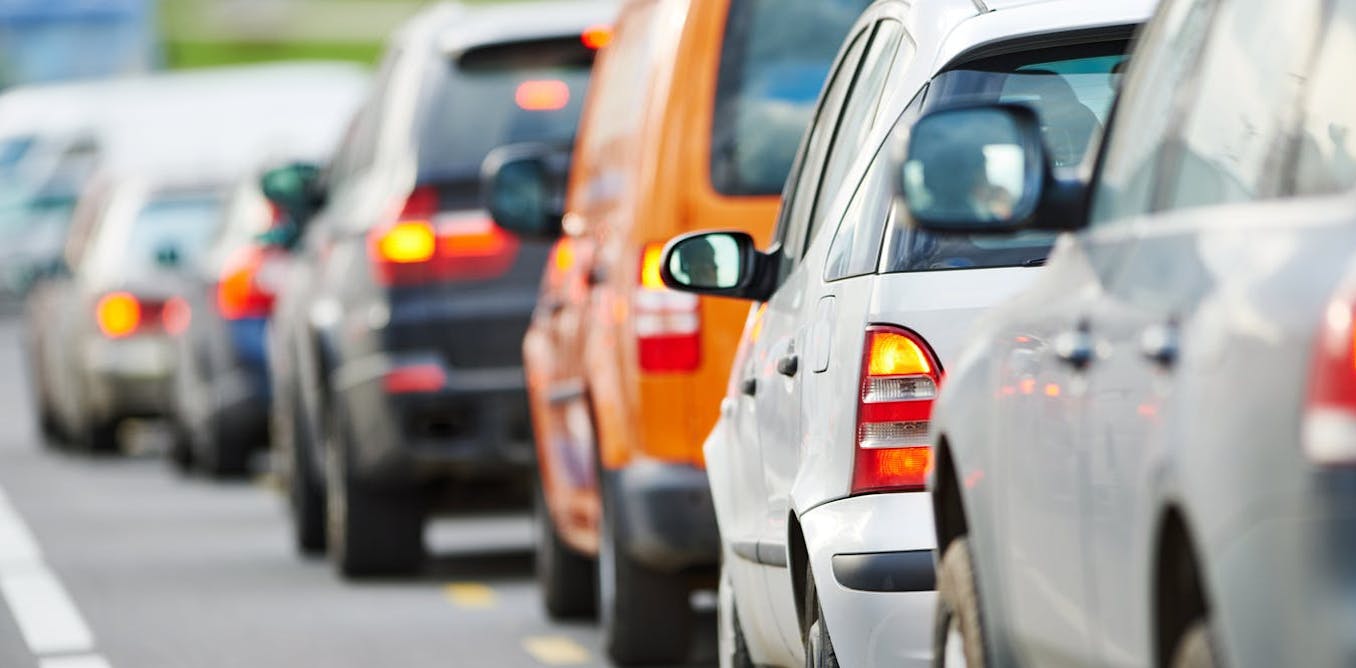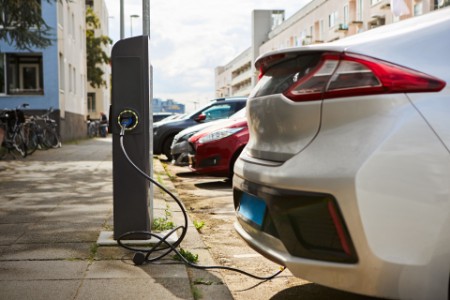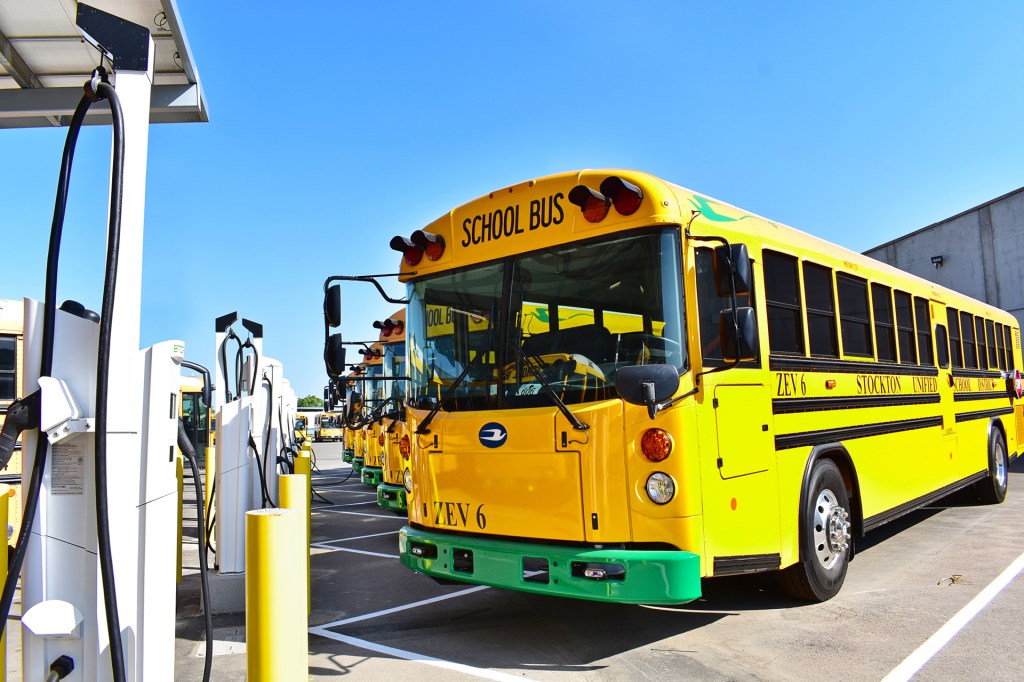What's Up With the Massachusetts Electric Vehicle Rebate?
Massachusetts’ rebate program for electric vehicles, MOR-EV, has been critical to the growth of electric vehicle...
 The Massachusetts Senate made big news last week by passing a massive climate bill that tackles transportation, buildings, and our electricity supply. This bill is supposed to put the pedal to the metal so that the state has the policies it needs in place to achieve the emissions reduction targets included in last year’s Climate Roadmap bill: first and foremost, a 50% reduction in economy-wide greenhouse gas (GHG) emissions reductions under 1990 levels by 2030. Here’s what this bill means for our efforts to phase out gasoline in Massachusetts – and the key next steps.
The Massachusetts Senate made big news last week by passing a massive climate bill that tackles transportation, buildings, and our electricity supply. This bill is supposed to put the pedal to the metal so that the state has the policies it needs in place to achieve the emissions reduction targets included in last year’s Climate Roadmap bill: first and foremost, a 50% reduction in economy-wide greenhouse gas (GHG) emissions reductions under 1990 levels by 2030. Here’s what this bill means for our efforts to phase out gasoline in Massachusetts – and the key next steps.
Transportation is the largest source of GHG emissions in Massachusetts (42%). To reduce our emissions enough to meet our 2030 goal, the state needs a two-pronged approach: investments in walking, biking, and transit to reduce vehicle-miles-traveled AND the widespread and rapid electrification of all the vehicles currently burning gasoline and diesel on our streets. On the latter, we’ve spent the past couple of months speaking with legislators and advocates about the need for a firm date, preferably 2030, by which all new car sales in the Commonwealth should be electric AND a clear plan for electrifying public fleets, public transit, and other medium- and heavy-duty vehicles.
In partnership with other advocates in the Zero-Emission Vehicle Coalition, we have been supporting a series of bills in both the House and the Senate that would advance the electrification of vehicles of all sizes in the Commonwealth. Several key bills had received extensions in the Transportation and Telecommunications, Utilities, and Energy committees and we were laser-focused on getting those bills reported out favorably – with an additional goal of Green Energy Consumers to set a 2030 phase-out date as a target to align state policy and investments. Then, the Senate surprised us by issuing a new climate bill on Thursday, April 7, requiring Senators to file amendments by Monday, April 11, and voting on the bill in a nearly twelve-hour session on Thursday, April 14. We scrambled to find sponsors for several key amendments and to activate our membership to send in comments in support of key provisions.
To the over 250 of you who sent in letters to your state senators in support of these important pieces, thank you! Your support absolutely made a difference.
The Senate climate bill had several important transportation provisions already, and then Senators adopted a couple of key additional amendments. Here’s the breakdown of some key parts of the bill:
Passenger Vehicles
 Incentives: Section 25 sets up an “EV Adoption Incentive Trust Fund” to issue direct consumer incentives for the purchase of EVs as well as outreach; Section 53 funds it with $100 million. The rebates are to be available for new and used EVs, for individual and corporate purchases, and for light-duty as well as medium- and heavy-duty vehicles. The bill maintains the existing $50,000 price cap for light-duty vehicles and trucks, increases the rebate from the current $2,500 to $3,500-$5,000 and offers higher rebates for individuals trading in gas-powered cars.
Incentives: Section 25 sets up an “EV Adoption Incentive Trust Fund” to issue direct consumer incentives for the purchase of EVs as well as outreach; Section 53 funds it with $100 million. The rebates are to be available for new and used EVs, for individual and corporate purchases, and for light-duty as well as medium- and heavy-duty vehicles. The bill maintains the existing $50,000 price cap for light-duty vehicles and trucks, increases the rebate from the current $2,500 to $3,500-$5,000 and offers higher rebates for individuals trading in gas-powered cars.
Charging Infrastructure
Public Transit & Other Fleets
 School Buses: Amendment #111 directs the Department of Elementary and Secondary Education, together with DOT, to prepare a report by December 15, 2022, on electric school bus adoption, including “recommendations on how to structure a state incentive program to replace or support the replacement of all school buses from fossil fuel powered-school buses to zero-emission school buses.”
School Buses: Amendment #111 directs the Department of Elementary and Secondary Education, together with DOT, to prepare a report by December 15, 2022, on electric school bus adoption, including “recommendations on how to structure a state incentive program to replace or support the replacement of all school buses from fossil fuel powered-school buses to zero-emission school buses.” S.2819 is remarkable in that it touches on lots of aspects of cleaning up our transportation system: passenger vehicle adoption, charging infrastructure, public transit, rate design, and more. Are there things we would still like to see? Absolutely. For example, we were heartened to see the addition of commuter rail electrification with Amendment #13 and are glad to see the MBTA, RTA, and school bus fleet electrification on the docket, but without a dedicated source of funding, meeting those goals will be near impossible.
The good news, advocacy does not stop here! The Senate and House now must reconcile their two bills – the House’s bill, which is much narrower in scope and touches mostly on offshore wind, and Senate bill S.2819, which includes transportation (and lots of other sectors we didn’t touch on in this blogpost but write about here). The latest we’ve heard is that this reconciliation will be a slow-moving process: the House and Senate must first deal with the budget and will then return to the climate bill(s) later in the session. We will keep our eye on developments very closely – stay tuned!
Massachusetts’ rebate program for electric vehicles, MOR-EV, has been critical to the growth of electric vehicle...
Late Sunday (July 31) night the Massachusetts Legislature passed H.4568, paving the way for the country’s largest...
Comments